Chaos of the Sixteen Kingdoms: 十六国大乱 Part 2 The Anarchy 后赵大乱


Part 1 could be found here. This is a story of stakes and the transience of power. It began with chaos within one of the most dominant kingdom's imperial house, and ends with the total obliteration of one of the five great nomadic Hu tribes, the line of Shi Hu and his kingdom of Later Zhao. What began merely as one family's succession crisis, of various feuding princes- soon devolved into an inter- ethnic massacre within the kingdom's borders. In the anarchy to come, each of the major generals that formerly served Zhao would not only wield veteran troops, but also wield the fate of their whole peoples in the great meat grinder. For those who lost, the cost is total obliteration.
UNRAVELLING OF LATER ZHAO
349 North was almost entirely under the sway of Later Zhao (Red) with its capital of Ye circled: once Zhao had been the terror of all surrounding kingdoms, however, with the death of its bloodthirsty tyrant Shi Hu, Zhao instead became an internally divided state surrounded by hostile neighbors on all fronts. Zhao thus imploded into a feeding frenzy both within and without.
The death of Zhao began with the death of its great tyrant Shi Hu- his death would usher in a great power vacuum that would break up Central China into a new battle royale from where many new players would emerge. It was total war on all fronts, the generals would fight each other while Zhao's enemies on the periphery made their bid into central China. Perhaps fittingly, for a state that was carved out in wholesale slaughter, it would end in one as well.
Personages in the following age: Key figure to pay attention to: in the east, Shi Min- a ruthless ethnically Han warrior/ adopted son in the Shi family (of Jie ethnicity,) Yao Yizhong, powerful Qiang Chieftan, and key Zhao general at the center, and Fu Hong, Di general who guarded Chang An in the west. In the war to come, when these ruthless men clashed, they waged wars with their whole peoples.
THE TYRANT DIES IN HIS CAPITAL
Our story picks up in the Zhao capital of Ye. In the summer of 349, after bleeding most of northern China in rapacious wars and killing most of his own heirs, the tyrant Shi Hu was near death. Before his passing he ordered that two of his remaining sons~ Shi Zun and Shi Bin be made regents for his 11 year old heir Shi Shi. However- the elevation of the 2 Regents interfered with the ambitious Empress Liu and her lackey Zhang Chai's plans to take over the government, and they issued false edicts that imprisoned Shi Bin and sent Shi Zun away. As Shi Hu grew closer to death, the palace was purged of all of the empress' opposition, Shi Bin was put to death. Shi Hu, the warmonger who had once terrorized all of northern China died unattended and without power what so ever, having been overruled by his Empress. After he died, Shi Shi took the throne, but after just 33 days the deposed regent Shi Zun rode back with a fast- riding army in his wake.
For Shi Zun had been busy. When he was locked out of power, a black resentment grew within him. This of course was noticed by many of the key Zhao generals who already somewhat suspected of Empress's intentions. During Shi Zun's banishment, Shi Zun was intercepted by one of the key generals of Later Zhao who was concerned about the intrigue within the palace. The general was Shi Min (an adopted son of Shi Hu, a fierce general in his own right) The two men talked, and after having learned of the coup within the palace, decided to slay the Empress. Shi Min convinced the exiled regent and adopted brother to depose the minor emperor and grab power for himself. The regent agreed, and- after appointing Shi Min as vanguard, raced to the capital with thousands of soldiers under the pretext to mourn the deceased emperor.
Music: Test Your Mettle
THE KINGMAKER- FROM THE SIDELINES
A found wolf: Not much is known of Shi Min's past except his original last name of "Ran," but his terrible capacity for violence attracted the appreciation of the tyrant of the north himself. Shi Min was described as tall and fearsome by contemporary records, and served with distinction as one of Zhao's best generals. During the failed invasion of Yan in 338 by the Zhao forces, when nearly all of the Zhao army collapsed, Shi Min's wing was the only one that did not break and marched back in good order.
Although alerted of an army approaching the capital, soldiers manning the walls thought they had came to pay respect to the late Shi Hu. Once the army was inside the city they raced to the imperial palace, the 11 year emperor killed, the Dowager Empress, despite tearfully pleading for her life was also executed. Shi Zun's sudden usurpation began a domino effect across the north. Immediately, the imperial army under Shi Chong guarding the northern boarder between Later Zhao and Yan raced back with a 100,000 strong army. To counter this host, the new emperor Shi Zun dispatched his own 100,000 soldiers under Shi Min and another general Li Nong to stop the reprisal. Despite fighting against some of Zhao's best troops, Shi Min destroyed the imperial army and broken their spirits, killing the would be avenger Shi Chong in the process. For his role in wiping out all of Shi Zun's enemies, Shi Min was rewarded with illustrious titles. However, cracks soon began to show.
The optics of the most recent coup was not lost on anyone within Zhao, with the slaying of Shi Hu's chosen heir and his Empress power within Zhao- at least outside of the capital devolved to the local levels. Seeing the internal divide, many powerful generals in the west of Zhao who were jealous of Shi Min's rise~ such as the Qiang chieftain Yao Yizhong, and Di chieftain Fu Hong (both only joined Zhao because they were brutally absorbed under Zhao leadership) went rogue, same goes for the Xiongnu people who inhabited the western half of Zhao. Almost all the Zhao lands west of the imperial capital became aloof and ignored the capital's edicts.
Smelling Blood: When informed of the disruptions within Zhao, its bitter regional rivals promptly leapt at the opportunity and invaded it from both the northeast and south. Due to the coups within the imperial capital, many Zhao generals to the west of the capital ignored imperial edicts and were for all purposes independent. The Xiongnu tribes that inhabited the wester parts of Zhao (blue) renounced their vassalage to Zhao altogether.
Seeing this sudden opportunity, and seeing that the massive imperial army on the Zhao- Yan boarder was removed, the state of Former Yan- now stronger and more unified than ever and under the vigorous rule of its new Prince Murong Jun marched against Zhao with a 200,000 strong army commanded by the ablest of Murong clan generals. The blood of Zhao infighting was smelled by another of Zhao's nemesis as well: Eastern Jin, who had recently united all of the south under its fold under able general Huan Wen's command. Like Yan, Jin also directed its attention squarely at marching north against the internally divided Zhao.

Former Yan- the undisputed hegemon of the north. Although territorially small, the ethnic Xianbei- led state of Former Yan rose to great prominence by repeatedly defeating invaders to their lands. By 349- in contrast to the internally divided Zhao, Yan was unified under the new Prince Murong Jun and primed for fresh conquests.
Unfortunately for the 200,000 Han subjects, just as they arrived in the area to meet with the Jin expedition - Chu Pou's expedition forces had just been vanquished. Without a way to return home, and without a way to reach Jin, the citizens died of starvation. For the moment, the position of usurper Shi Jun was secured. However it was precisely at this hour, Shi Jun smothered his own future, and turned on the 1 person he should never have crossed, in turn initiating a chain of events that would end in the total slaughter of his own family.
KILLING SHI MIN
Originally, in order to secure Shi Min's loyalty, Shi Jun promised to make Shi Min his crown prince and pass the throne to Shi Min. For this Shi Min served loyally at the head of the vanguard armies. However, when Shi Jun felt his power secured, he reneged on his promise to make Shi Min crown prince. Instead the position was given to another general Shi Yan. Also- fearing of Shi Min's capability as a general- and fearing the sub commanders who were personally loyal to Shi Min, Shi Zun and his ministers at court soon plotted to have Shi Min executed, but Shi Min and Li Nong was informed of this by prince Shi Jian (who was inside the palace and overheard the conspiracy,) and both generals surrounded the Imperial palace with 3,000 soldiers, they dragging out Shi Zun and executed him. He then made Shi Jian emperor, but in reality, Shi Min and his ally Li Nong were the real power in charge.
Music: Ambush from Three Directions
KILLING SHI MIN AGAIN
After Shi Zun was deposed, one of the records reported that before Shi Zun was executed, he spoke to his traitorous kin, Prince Shi Jian- now Emperor Shi Jian, and merely asked "After seeing how easily I was deposed, how long could you last instead?" After Shi Jian's enthronement, Shi Jian too grew fearful of Shi Min, also tried to kill him. One night, he sent out 3 of his top generals to attack Shi Min's private palace to kill both Shi Min and Li Nong. But when they were defeated by Shi Min's crack troops inside the palace the desperate Shi Jian instead accused his 3 generals of treason and immediately had them executed to prevent them from revealing his involvement. By now desperate and fearful that Shi Min might unseat him, Shi Jian send out many secret edits out the capital to call for all of the Zhao generals still loyal to the Shi family~ namely the great generals Yao Yizhong and Fu Hong, plus for all of the Jie nomadic tribesmen around the capital to launched a surprise attack against Shi Min. 3,000 of these waiting assassins waylaid Shi Min's troops in the capital's palace, but astonishingly, Shi Min again defeated them all.
SHI MIN MASSACRES THE JIE
It was here the Shi Min made a realization. Shi Min realized that- in examining the corpses of the fallen soldiers who had ambushed him in the palace all of the slain were Jie tribesmen, the Jie people had came against him in unison because he was still not one of them (an adopted son after all.) Aside from the remaining Shi Princes arrayed against him, All the most powerful generals in Late Zhao- the Qiang chieftain Yao Yizhong, and the Di chieftain Fu Hong, are now marching against him too with even more Jie tribesmen. Shi Min reasoned that from a strategic point, he was surrounded by enemies both outside the capital, and also likely many still within. Much like the 3,000 Jie assassins he just put down in the palace. Shi Min concluded that he was facing the collective onslaught of the Hu peoples.
Assessing the situation, Shi Min proclaimed everywhere within the capital that anyone staying in the city must be absolutely obedient to him or else they should immediately leave. If not, they would face severe punishment if they disobey his orders. As a result, thousands of Jie-, fearing Shi Min, flooded out from gates. Realizing that Jie had collectively turned on him and was in the process of running toward his enemies; Shi Min drafted a draconian order. He gave the order that each civil servant or soldier who brought him the head of a Hu would be promoted 3 ranks higher and captains who had done so promoted to generals. Within days, Shi Min's soldiers carried back tens of thousands of heads from Hu, bodies were left in a massive unburied mound outside the city. He then deposed Shi Jian from the throne and placed him under house arrest.
Later Zhao Implodes:- After taking the capital of Ye (cross marked) the bloody state of Ran Wei (Red) brutally seizes the densely populated heartland of Later Zhao (remnants marked in orange.) One of which was the Di- led state of Former Qin (brown), under the wily leadership of Fu Hong and his son Fu Jian. Another was the refugee state of Qi (teal), led by the ethnic Xianbei chieftain Duan Kan who- after loosing to Yan, escaped south and took control of the Shandong Peninsula. Nearly all of the key Late Zhao government, soldiers, officials and nomadic tribesmen- over 10,000 fled to the Zhao remnants under Shi Zhi (orange)- the last son of Shi Jian. Meanwhile, internally united and eager to take advantage of the chaos to their south, Former Yan (purple) sweeps down into the heart of what once was Later Zhao. In the west, the Xiongnus tribesmen (dark blue) broke off.
Music: Fires of Chaos
LATER ZHAO IMPLODES ALONG ETHNIC LINES
Various powerful local generals and chieftains throughout the empire effectively became independent warlords. In order to put down Shi Min, Fu Hong and Yao Yizhong marched against Shi Min with their respective Di and Qiang tribes. Joining them was the last remaining heir of the Shi clan- Shi Zhi, whose Zhao remnants lay north of imperial capital.
In 350, to the north of the capital, the Zhao Remnants under Shi Zhi's champion Shi Kun 石琨, with some 70,000 ethnic Hu Zhao loyalists assaulted Shi Min's positions. Shi Min responded with thousands of crack cavalry, and reportedly "wielded 2 spears in each hand," destroyed Shi Kun's reclamation force. Although Shi Kun personally escaped, Shi Min was hot on his heels. By now paranoid that every Hu would do harm to him, Shi Min used the follow up to mop the 4 corner of the countryside of "rebels."
To flush out potential "rebels," troop commanders in various parts of the state received a rescript from Shi Min to kill the Hus (胡); as a result many people with high noses and bushy beards were killed. Among the people who died in the massacre many were in fact ethnic Han Chinese who had high big noses, deep-set eyes and thick full beards, which in combination were considered to be the indicators of non-Hanness.
As Shi Min's troops were busy, the puppet emperor Shi Jian- still the nominal head of the Zhao state, frightened that if Shi Min ultimately emerged victorious he would have no need for a puppet, made one final attempt to kill Shi Min. Jian secretly drafted an edict ordering general Zhang Shen (張沈) to attack the capital after Shi Min was busy in his bloody campaigns. However, Shi Jian's eunuchs reported this to Shi Min and Li Nong, and they quickly returned to Ye and executed Shi Jian, also killing 38 of Shi Hu's grandsons and the rest of the Shi clan. After this final bloody deed was done, Shi Min's followers convinced him to take the throne as Emperor. Shi Min thus restored his name to his father's original family name of Ran (冉), then took the throne as the emperor of a new state, Wei (魏). He then changed his name back to Ran Min. The 1st act of Ran Min was bloody as well as full of stunning hypocrisy- despite Li Nong's great contribution in his rise, after only a month of ascending the throne, Ran Min killed Li Nong and executed his family.
BATTLE ROYALE FOR THE NORTH
Standoff in the north. After Ran Min asserted his unrivalled dominance in the east, the Qiang chieftain Yao Yizhong and Di chieftain Fu Hong were expelled to the west of what was Zhao. There, Yao Yizhong attempted to wipe out Fu Hong's Di. However Fu destroyed Yao's army. With the Qiang driven off, the Di permanently entrenched in the west around Chang An. Chang An (brown- west) and Ye (red- east) became two rival political centers.
Ran Wei was not the only hotspot of chaos and massacre. With the elimination of most member of the Shi clan and declaration of Ran Wei, in each region of Later Zhao, generals started fighting and killing each other, divided along ethnic and tribal affiliation lines. Jie and Qiang chieftains warred while the Xiongnu made their domains in the west along the northern bent of the Yellow River. Like Ran Min, other former Zhao generals also tried to murderously take matters into their own hands. Though originally both Yao Yizhong and Fu Hong both were racing back to slay the usurper Ran Min, after they were informed of the carnage within the capital, the veteran Qiang chieftain Yao Yizhong suddenly sent 50,000 of his Qiang tribesmen led by his crown prince Yao Xiang and attacked Fu Hong's Di tribesmen. Despite having be caught flat- footed, the Di resoundedly crushed the Qiang army. Yao,- blasted and with his own horde crumbling, escaped northeast and bent his knee to Shi Zhi's Zhao remnants to Ran Wei's north.
FU HONG CARVED OUT HIS DOMAINS IN THE WEST AND DIES
Having survived the ordeal in the Zhao heartlands, repelled his enemies, and carved out his domains, Fu Hong elevated himself to the position of Generalissimo and invested himself with many landed titles of nobility. The Di then made the area around Chang An their capital and permanently settled there. In this new standoff, the north was thus mostly divided between Ran Wei and Fu Hong's tribe. Unfortunately for the recently elevated Fu Hong- during a great celebratory feasts in his honor, his wine was poisoned by one of his vassals. He did not die immediately, and promptly ordered his killer executed, however it was too late to reverse the course of the poison. After passing the mantle of his rule to his son Fu Jian and ordering the Di to fanatically guard these western domains, Fu Hong succumbed to his poison.

In order to legally secure the territory under Fu clan's hold, Fu Jian pretended to pledge his allegiance to the Jin court and was in turn awarded the Duke of Qin (the area around Chang An~ Xian in modern Shaanxi province was the heartland of the Qin state in centuries past.) Thence, the Di- held state would be known as Former Qin. Unfortunately for practically all of Zhao's former competing generals, it was right during this time, Yan's massive army of 200,000 soldiers swept into Central China from the east.
WAR FERVOR
RAN MIN ON THE CUSP OF ABSORBING ALL OF ZHAO
It was the Zhao remnants that made the 1st foolish move, Shi Zhi- the only surviving son of Shi Jian- having gathered his kin Shi Kun (previously beaten back by Ran Wei where Ran demonstrated his ability with wielding 2 spears) now combined with Yao Yizhong and launched a desperate all out assault against Ran with nearly 100,000 Hu soldiers under Shi Kun. Ran Min- like his previous victories, again personally led his forces. His massive army numbered some 300,000 in battle. Near Cun Ting Ran's massive army broke Zhao remnant's assault. After breaking the Zhao forces, Ran Min continued his relentless pursuit with some 100,000 Wei soldiers.
Uncharacteristically, during this time, Ran Min considered reorganizing some 10,000 captured Hu tribesmen and putting them under the personal command of his crown prince, but one of his ministers Wu Xiao strongly opposed letting the notoriously shifty Hu be reincorporated into the Ran's army (arguing after all, weren't they once Jin's mercenaries then turned against their masters?) Wu instead advocated all Hu prisoners be slain. Ran Min- at this time wanting to again attract Hu tribesmen back under his banner was enraged, to placate them, killed the minister and his whole family.
In 351, fearing the coming of Ran Min the Zhao remnants under Shi Zhi sent out desperate pleas to the nearby Xianbei state of Dai for an alliance, but the negotiations were inconclusive since Dai is an ally of Yan, and Yan hated Zhao. Having lost many of the original 100,000 army and propped up only by Yao Yizong's Qiang soldiers and Shi Kuns's few remaining soldiers, Both loosers were again defeated by Ran Min on the field. Ran Min- rejoiced at his victories and the irrevocable collapse of Zhao, wanted to personally lead his 100,000 army to finish Zhao once and for all. He smugly dismissed the protestation from his ministers - arguing that in order to firmly secure supremacy both in the hearts and minds of subjects and overawe the various Hu tribues to submit to him, he must personally deliver the coup de grace.
CAPRICIOUS FATE- RAN WEI AND ZHAO
Music: Rending of Flesh
Unfortunately for Ran, when Ran Min's army appeared, he ran headlong right into the massive vanguard of the 200,000 strong Yan Army, To make his situation much worse than it already was, behind his own army, then appeared all 3 of Ran Min's Zhao enemies: the 3 Zhao generals, including Shi Kun, Yao Yizhong's crown prince Yao Xiang, and even Emperor Shi Zhi himself with his own army. These forces did not waste any time and swiftly attacked Ran from the flank. In the ensuing battle Ran's forces were nearly wiped out, Ran Wei's army end up having suffered hundreds of thousands of losses. Ran Min himself barely escaped to the wilderness. Hearing of Ran Min army's defeat, the Hus within Ye immediately turned on their host, and the Crown Prince's Hu bodyguards kidnapped him and took him to to Shi Zhi's Zhao remnants, beheading him.
Ran Min's string of victories completely reversed. Having blown away the Zhao remnant forces, Ran Min rode out with his army to deliver the final coup de grace to end Zhao once and for all, however, fortune did not smile upon him, for he ran right into the 200,000 Yan army. The Zhao- sensing opportunity also joined in the battle against Ran. The Wei army was almost completely wiped out and Ran Min barely escaped to the wilderness.
ZHAO ERASED
Zhao Remnants ignored the Yan and was only concentrated on wiping off Ran Wei. Shi Zhi was frustrated that the Ran Wei's capital did not immediately surrender to Zhao fold. To retake the former Zhao capital, Shi Zhi sent 70,000 soldiers (the last reserve of Zhao soldiers) toward Ye. However, on their march to Ye they were ambushed by a previously- thought beaten tiger. Ran Min appeared with his remaining forces and broke the surprised Zhao army, the badly broken Zhao army completely collapsed and turned into a rout. A fleeing Zhao general, exasperated, without men and desperate to save his own skin, raced back and killed Shi Zhi. The general then sent Shi Zhi's head to Ran Min as a sign of surrender. Shi Kun- shocked at the killing of his commander and leige, escaped south to Eastern Jin but he too was beheaded; this time as a traitor to the Jin court. The Shi clan was utterly wiped out. And- due to the immense attritional battled with Ran Min where some 200,000 were killed in the implosion of Zhao, the Jie culture ceased to exist after this period.
Much of Zhao's territory- instead of falling to Ran Min- instead pledged themselves to Fu Jian's Qin to the west, as such, Qin nearly doubled in size. Confident of the secure position of his domains, in 352, Fu Jian declared himself Emperor of Former Qin, dropping any pretense of his vassalage to Jin.
THE GREAT YAN TRAP
Yan grew tired of Ye's stubborn resistance, in 351 Yan also launched a direct invasion to take Ye. Annoyed at waiting for Yan to besiege his capital, Ran Min preempted this, and again led his army personally to invade Former Yan's holdings to his east. Although fighting with a smaller army than he had at his prime, Ran Min still proved his worth as a dogged fighter and emerged victoriously in 10 battles with the Yan. After these repeated rebuffs, Yan's leadership agreed that rather than fighting direct engagements with Ran Min, they would try to ambush his forces instead. In most of the Former Yan- Ran Wei battles, Ran Wei was forced to rely on an army that's largely composed of infantry, while Yan forces were almost exclusively cavalry. To offset his own disadvantage, Ran Min often only chose to fight in highly wooded forests against the Yan cavalry.

The brilliant Yan general Murong Ke, Prince Murong Jun's brother and senior commander of the Murong clan thus devised a clever plan to lure Ran Min out. After Yan assaulted the forested Ran Wei positions like many times before, the Yan troops allowed themselves to lose several skirmishes. Ran Min's forces- believing they had again achieved victory, came out of the forest to pursue the fleeing Yan forces. After having fished the Ran Wei forces out of their forested defensive position into the open field, the Yan then turned on the pursuing Ran forces from 3 directions, for the coup de grace, Yan placed crack Yan cavalry leading the soul crushing charge (likely cataphracts.) After being surrounded Ran forces began to desert from the field, and while Ran was retreating off the field his warhorse Zhu Long (literally meant "Red Dragon") suddenly died and he was thrown off the steed and captured.
THE FINAL INSULT
Former Yan forces delivered him to the Yan Prince Murong Jun, Murong Jun asked how could a vassal knave like him call himself an Emperor, and Ran Min retorted, if you barbarian foreigners dare to call yourselves Emperor, why couldn't I? Annoyed, Murong Jun had him whipped 300 times and then executed.
Ran Min today is largely, singularly remembered in China for his killing of the Jie people and the Hu, and because his career was cut short before he was able to play any other roles, his memory is composed exclusively of war and slaughter. Ran Min exists as one of the most reviled figures within China today.
With the death of Ran Min, and the previous death of his crown prince, the Ran Wei state crumbled. Former Yan soon took over most of what was both Zhao and Ran Wei.
There is a strange similarity between Ran Min and some of the other brief warrior- kings in China, like Xiang Yu and Lu Bu (when he set out to form his own state.) These men with extraordinary capacity for violence almost all emerged out of the unknown, and singularly defined their careers as an unmatched slayer. They destroyed armies that should by all means have beaten them, and- when all the world was set against them, was still, at times able to somehow kill through it. Ran Min was like Lu Bu in the respect that he was also the right hand of a tyrant, and ended up destroying the tyrant's regime and slaying the tyrant foster father's whole family. Lamentably for such violent souls, they were seldom good at little else, especially in politics. All 3 such violent men who attempted to form their own states were immediately put down by more cunning foes no less than a decade after they ascended their respective thrones.
RAN WEI COLLAPSES- YAN DOUBLES IN SIZE
With the death of Ran Min, and the previous death of his crown prince, the Ran Wei state crumbled. Former Yan soon took over most of what was both Zhao and Ran Wei. Although Murong Jun was gladdened of his victories, he soon grew fearful that Ran Min's lingering spirit was causing a drought across the north, and therefore chose to honor Ran with the posthumous name Emperor Daowu. Ran Min's wife Empress Dong and her son Ran Zhi would hold out for several more months, but eventually surrendered the capital to Murong Jun later that year, ending Ran Wei's 3 year existence. Murong Jun chose to spare Ran Min's other descendants, and nobles with surnames of Ran lived in Yan for after this period.
The Jie continued to be referred to in some records after this era, but survivors largely assimilated to the neighboring tribes and their cultures. The Xianbei tribes of Former Yan, as a military class, soon took over most of Central eastern China.
After receiving the submission of the capital at Ye and much of Central China, Murong Jun declared himself Emperor when the Jin ambassador came to his court. The Xianbei- led Yan would now assert itself as one of the most powerful states in the north with ambition to conquer all. A new age thus dawned, in which Yan would not only fight for supremacy in the north, but also one day lay claim to the south as well. A new round of wars would thus began among the survivors of Zhao's collapse. One year after Ran Wei's destruction Yan, Qin, Jin would all be at each other's throats. Blood was about to be spilled across the north again.
Join us next chapter in Part 3 for the lament of the patriots, and witness Jin throwing several punches back against the north. Also witness the beginning of the greatest northern kingdom to rise in the Sixteen Kingdoms period- our recently settled friend the Former Qin. Lament of the Patriots awaits.
Thank you to my Patrons who has contributed $10 and above: You made this happen!
➢ ☯ Muramasa
➢ ☯ MK Celahir
➢ ☯ Kevin
➢ ☯ Vincent Ho (FerrumFlos1st)
➢ ☯ BurenErdene Altankhuyag
➢ ☯ Stephen D Rynerson
➢ ☯ Michael Lam
➢ ☯ Peter Hellman
➢ ☯ SunB
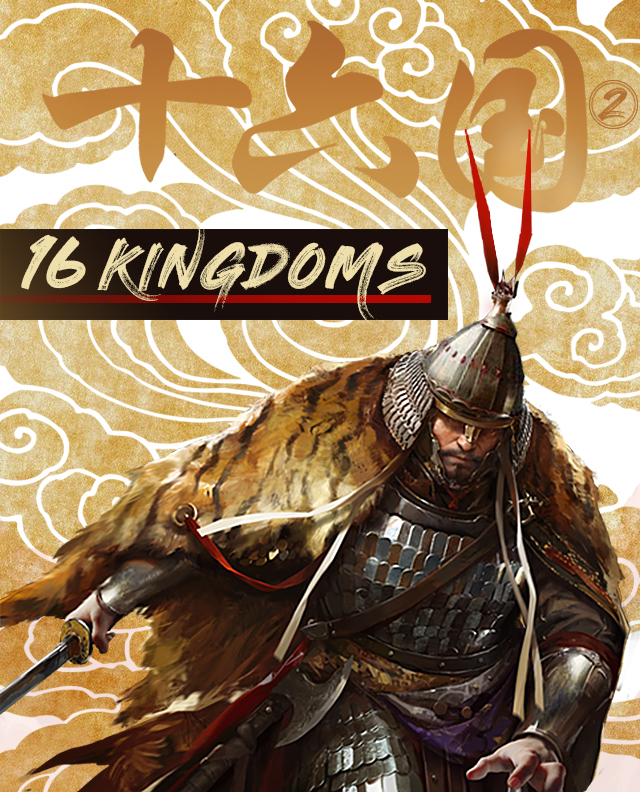


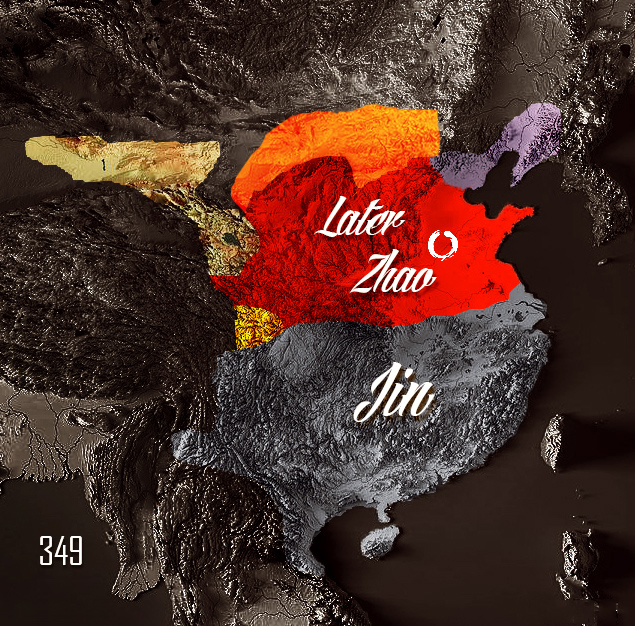

















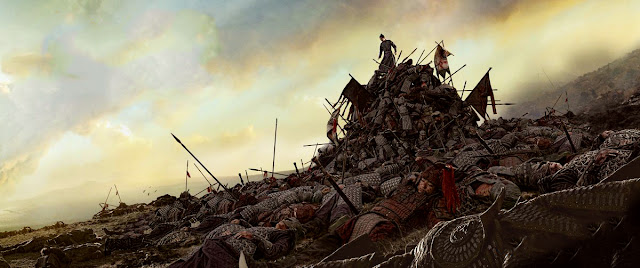























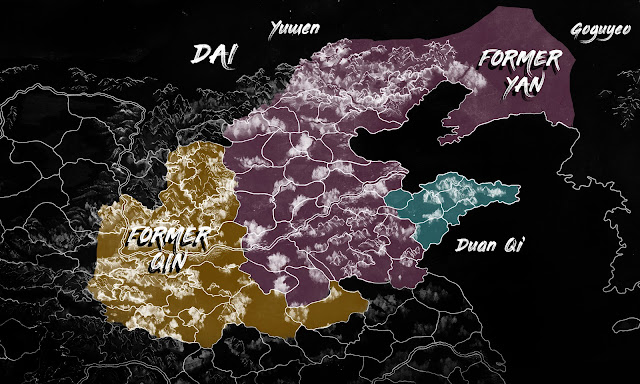







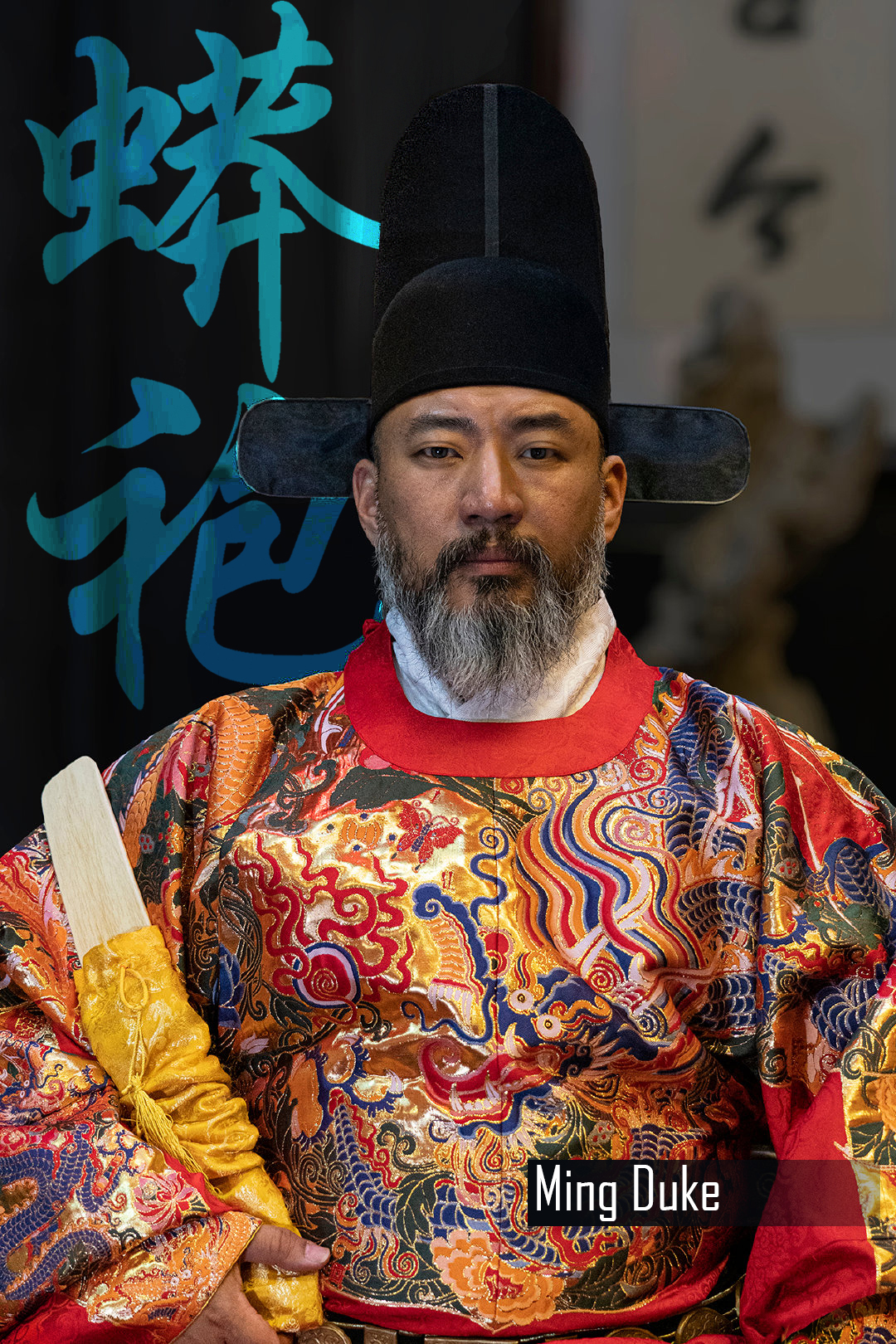
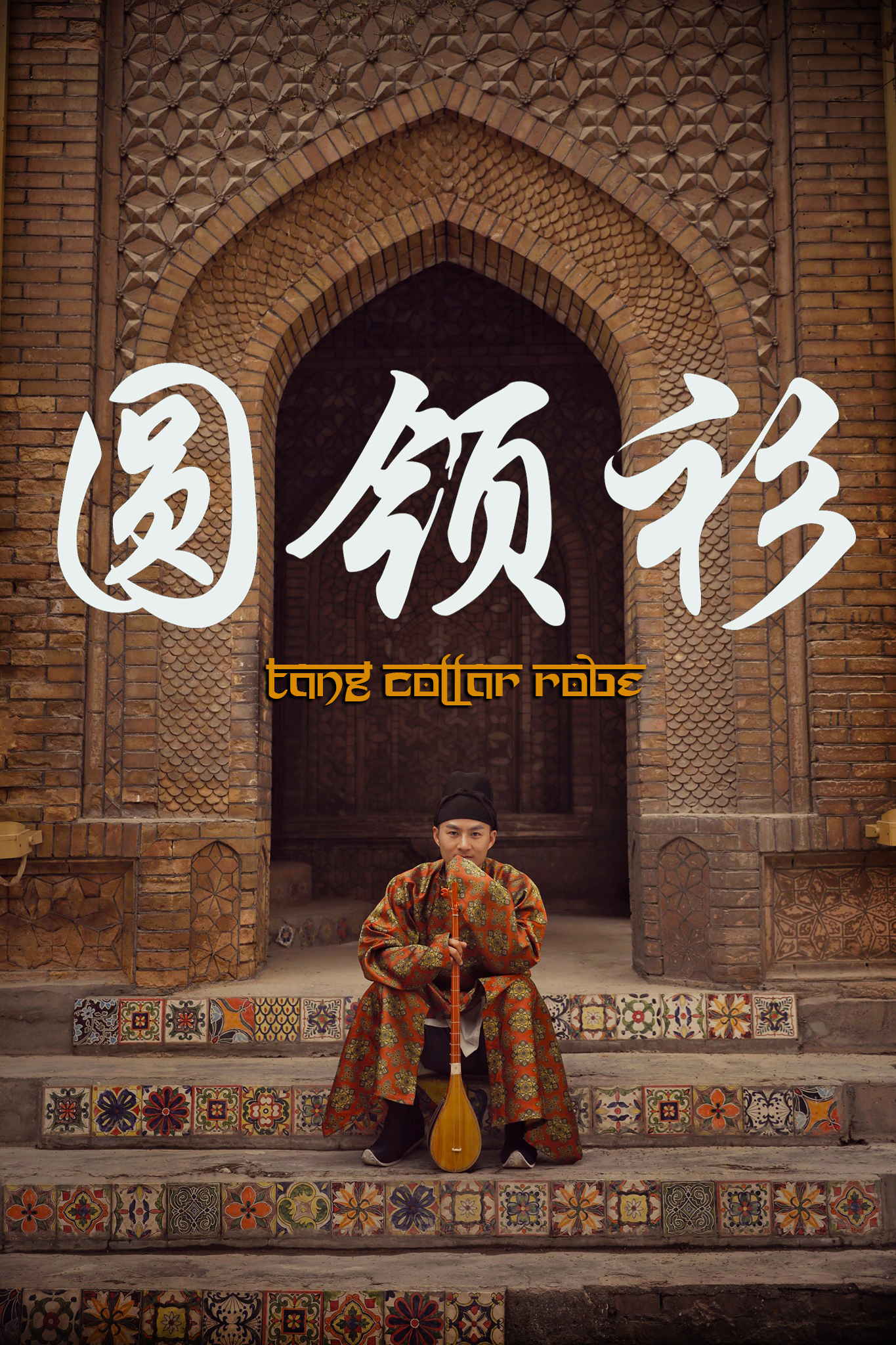

Comments
What do you think of Ran Min? Do you think he is a national hero of Han people? 3Q
wtf?
Xiang Yu from King's War and Lu Bu from 2010 Three Kingdoms TV series were played by actor Peter Ho. The man must have pumped up irons for the roles, maybe in the future he would take the role of Ran Min (if there's a TV show about him).
Anyways, where's the part 3? Would u mind?